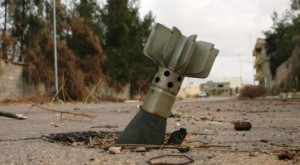
De facto, the country is split into three parts – Tripolitania, Cyrenaica, and Fezzan, two of which have declared autonomy and almost ignore the central government. Neither the structure of the new state government nor the armed forces have been finalized. There remains a significant number of militants and radical Islamist militants who have not agreed to submit to the control of the authorities and are subordinate only to their field commanders. They organize terrorist attacks, set off explosions near government offices, and actively use the practice of kidnapping as a means to pressure the new Libyan authorities.
The degradation of the situation in Libya in July 2014 took on a landslide character.
However, as the Washington Post wrote, “Libya needs the U.S. for its transition to democracy”, by which Washington tried to explain its “selfless” sympathy for this country. In this case, the newspaper did not fail to note that “the vast oil wealth of the country, coupled with its relatively small and “homogeneous” population (6.5 million citizens), allow Libya to finance its development by involving only modest foreign investment.”
Today in Libya, there is no central authority, which is substituted by two governments: in Tripoli, the Islamists hold the parliament in their hands, and a second parliament acts in Tobruk, which is headed by “anti-Islamists” and recognized by the United States and, hence, the international community.
It is the power structures in Tobruk that Washington has long been “reinforcing” with its people, hoping to create from them a “backbone” for the future of a puppet government that would diligently follow instructions from the White House and, finally, the United States would reap the benefits for which the overthrow of Gaddafi and the armed intervention in Libya were undertaken in 2011. Naturally, for this purpose Washington is focusing on leaders of paramilitaries in Tobruk.
In addition, the recent success of Field Marshal Abdel Fattah el-Sisi, who came to power in Egypt, deprived both the White House and the CIA of sleep, strenuously seeking to repeat this “experiment” and plant in the Libyan presidency its own nurtured commander.
The retired general of the Libyan army Khalifa Belqasim Haftar is more clearly becoming such a nominee beneficial for Washington and the CIA, who is today a stone’s throw from leading Libyan army formations and obtaining the support of the national parliament.
Haftar was born in 1949 in Benghazi and began to serve in the Libyan army from an early age. In 1969, he actively supported Gaddafi in the revolutionary overthrow of the King of the United Kingdom of Libya, Idris 1, which largely determined the growth of his military career until 2011. Haftar improved his military knowledge in higher educational institutions of Libya and the Soviet Union, as well as a number of other countries with which the Gaddafi regime maintained close ties.
In the 80s of the last century Haftar, being one of the top army commanders, was actively involved in the Libyan-Chadian armed conflict, was captured by French troops in Chad, where the US extracted him and arranged for him to live in Virginia in 1990 close to CIA headquarters. During his 23 years of exile in the United States Haftar became an American citizen, and not without the participation of the CIA, while in the US he formed an opposition to Gaddafi from other Libya soldiers and civilians who fled. After the US armed intervention in the country and in the wake of the “Arab Spring”, Washington returned him to Libya in 2011, and he became one of the senior staff of the “renovated Libyan army”.
In February 2014 the media reported that Haftar requested the suspension of the National Congress and began military action against Islamic groups that occupied all the government posts of Libya after Gaddafi. However, these actions of his did not lead to noticeable results until May 16 when he launched a military campaign against the current interim government and parliament of Libya, which the emirate’s media has dubbed “the Libyan Charity”.
Today General Haftar has a significant number of weapons, which, according to certain data, is estimated at 50 million units. Therefore recent reports are unsurprising that his group of fighters captured on January 21 the Branch of the Libyan Central Bank in Benghazi, January 22, according to the newspaper New York Times, militants have established complete control over the branch of the central bank, where he kept export revenues from oil sales and foreign exchange reserves of Libya of about $100 billion in total. According to the newspaper, the Libyan central bank was “the nation’s last functioning institution.”
Against the background of these successes, Haftar supporters began to call him “the supreme commander of the army”, and he, in order to further strengthen his personal power, initiated a new wave of criticism against the prime minister and chief of staff, on which his future directly depends. Without resting “on his laurels” and clearly following the recommendations of his American curators, Haftar in a recent interview with Asharq Al-Awsal already announced his intention to run for president, saying “if I have the approval of the people, I will act.”
Vladimir Odintsov, political commentator, exclusively for the online magazine “New Eastern Outlook”.
